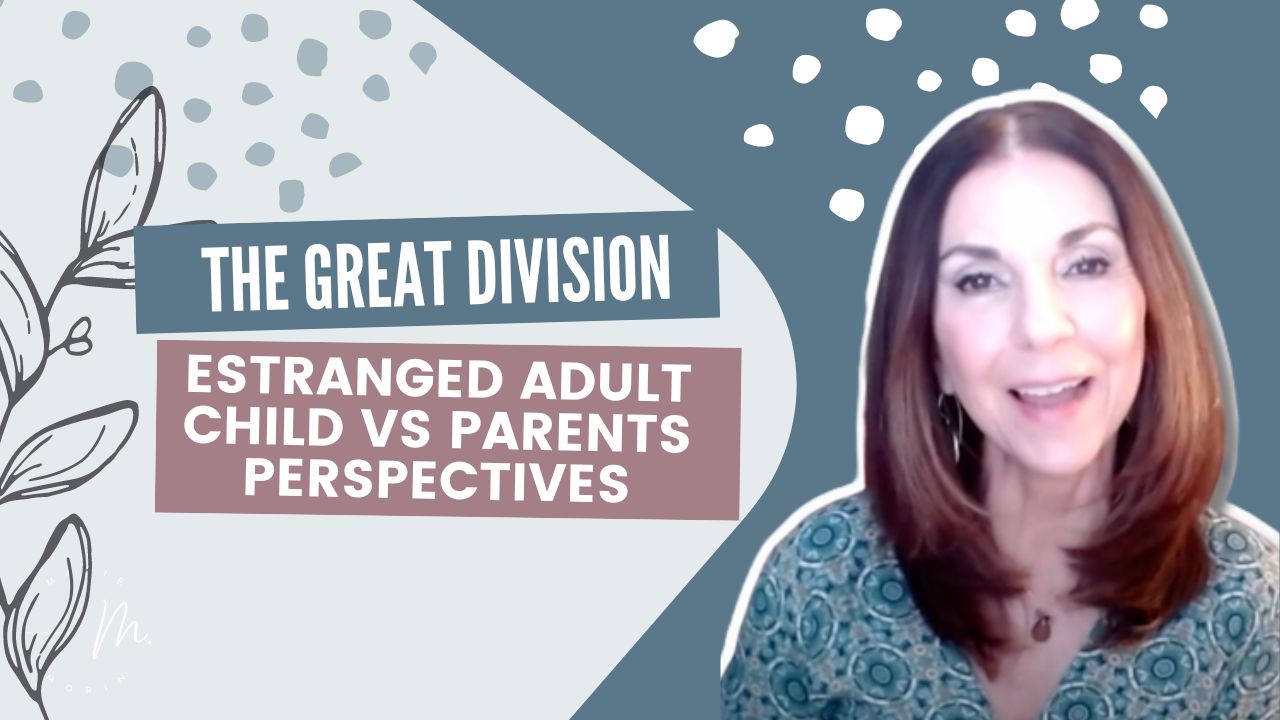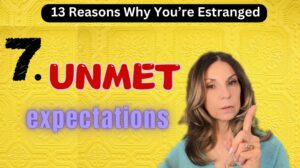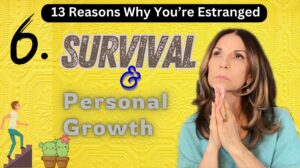Estrangement is complicated and deals with perspectives from many different angles. Adult children will have a different view of estrangement than parents will. Estrangement can be challenging to navigate emotionally since both estranged parties likely want to solidify who is to blame. Through the lens of responsibility and blame, this article discusses Estranged Adult Children VS Parent’s Perspectives (Five Key Factors).
Adult Children vs Parents Perspectives
For individuals in their 60s and considering their developmental stage, estrangement adds great discomfort, anxiety, and grief. It is extremely difficult to understand and cope with estrangement. The goal is to help these individuals understand the research behind their estrangement condition and gain insight into their adult child’s potential perspective.
Some Factors to Consider:
LAYERS
Every child and parent relationship has layers to it. The child grows, as well as the parent. The parents are responsible for their behavior; however, perfection is unattainable. There is an unbalanced evaluation that takes place with children and parents that causes parents to become scrutinized to a higher degree.
The differences between who caused or influenced estrangement are remarkable.
Interviewed parents reported parental alienation, divorce, entitlement, objectionable relationships, sibling jealousy, and favoritism as the most common causes of estrangement. On the contrary, adult children tend to view their reason to cut off as a characteristic of their parents. Adult children evaluate their parents using a relational value. They look at their parent’s character and behaviors.
PARENT-CHILD EVALUATION SCALE
Kylie Agllias’s book Family Estrangement, a Matter of Perspective, discusses how people will make a low relational “evaluation based on the assumption that members will look after each other’s welfare.” If there is a low relational evaluation, there is a sense that the relational partner values them less than they want or expect. Adult children will perceive a low relational assessment when they do not feel protected or supported in the way they desire. The adult child may feel exploited, used, or manipulated, as well as rejected or not accepted. The adult child will review their relational value to their parent and decide how much they feel the parent has their best interest in mind. The adult child may estrange from the relationship if it does not match their expectations.
SOCIOLOGICAL CHANGES IN CULTURE – DIFFERENCES BETWEEN THEN AND NOW
Family is viewed differently from how it was many years ago. Families historically were expected to stay connected through thick and thin. Whether through guilt or obligation, past generations were more inclined to remain enmeshed in the family whether or not they liked it. In our current cultural climate, adult children decide if they want to stay immersed in the family through adulthood. It is not always of the adult child’s value to remain close to their given family. As painful as that might be for a parent, it is the individual’s choice to separate from the given family, and from the adult child’s perspective, the parent should respect their decision.
MENTAL HEALTH AND THERAPY
It’s common for estrangement to become an option when an adult child begins psychotherapy. Rather than placing blame on the therapist for the estrangement, rather than uncovering the perspectives and how they contributed to the fall-out. Sometimes it is evident through observation of a therapist who the main contributor to the estrangement is; other times, it is not. The complexities of genetics, personalities, family histories, etc., may amplify parent-child relationship conflicts and bring out the worst in each party. However, the therapist only gets one perspective of the relationship, which is from the adult child. Because of this factor, the therapist might attribute the parent’s behavior and parenting to the adult child’s current state of being. To address the adult child’s feelings, the therapist might recommend estrangement as a proper coping method.
VICTIMIZATION
Contemporary research finds that adult children and society generally point to our upbringing and how we were parented as the framework of how we will succeed in life. This idea places an unbalanced responsibility on parenting when in reality, many other factors come into play. To attribute all of our successes, failures, and current mental faculties to our family upbringing is not reasonable. However, the family is the place where most will go to attempt to discover what is holding them back in their own lives. Estrangement is a desirable route for an adult child who believes that their parents’ past or present is the reason for their unhappiness.
Estrangement and who is to blame is a query that is consistently under fire.. The diverse perspectives and sociological differences between adult children and their parents contribute to the difficulty of estrangement. This article discusses Estranged Adult Children VS Parent’s Perspectives (Five Key Factors).





